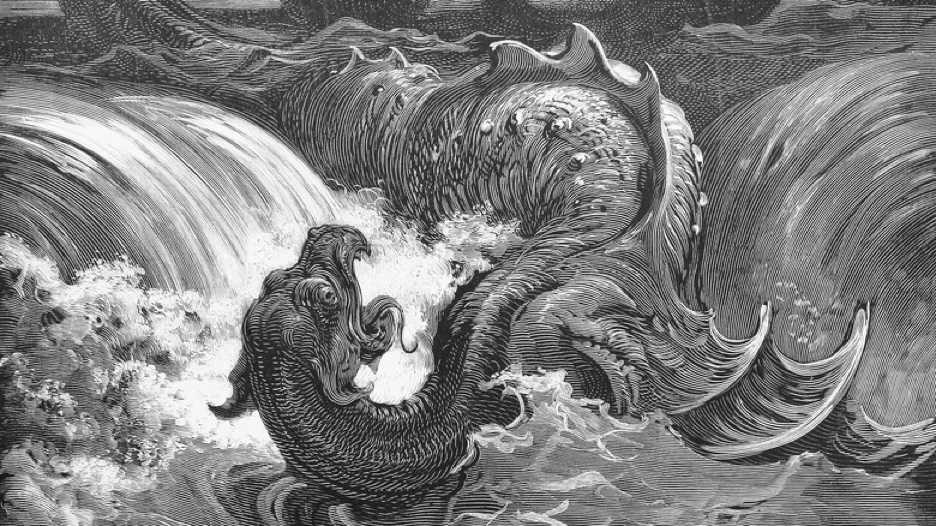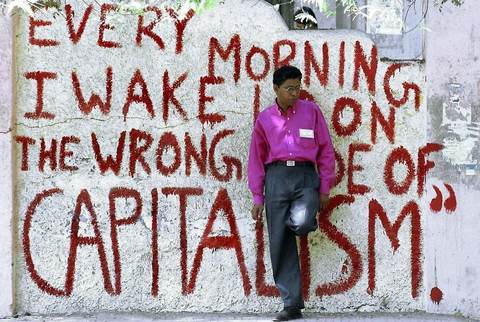Capital as a State of Mind: from month to month
Seminar 5 (11+12 June) in PAF
Persons and Things
Of persons, personification, when things become personified and people objectified, reified. We will consider the notion of equivalence again not via Goux this time but through the commodity of money, the money form, the value of commodity, and the circulation of capital. For this we do Marx with Heinrich. The personification of capital emerges as we pay attention precisely to the impersonal nature of circulation and value (despite its being ultimately social through labour power), and at passing references to the capitalist. We begin to think about the state, the sovereign, and the person (through a preliminary reading of Hobbes), more specifically, with the aid of Neocleous, the imagination of the state and the personification of capital.
reading:
Marx, Karl (1990). Capital: A Critique of Political Economy, Volume 1. Translated by Ben Fowkes. London: Penguin. Chapter 3: 202-209; chapter 4: 247-256.
Heinrich, Michael (2012). An Introduction to the Three Volumes of Karl Marx’s Capital. Translated by Alexander Locascio. New York: Monthly Review Press. Chapter 4: 81-91
Hobbes, Thomas (2004). Leviathan. Ware, Hertfordshire: Wordsworth Editions. Introduction: ix-xxvii, the introduction: 7-9; chapter 14: 100-111; chapter 16: 124-128; chapter 17: 131-135; chapter 21: 164-169.
Neocleous, Mark (2003). Imagining the State. Maidenhead and Philadelphia: Open University Press. Introduction; Chapter 3: 72-87; and read what you can of chapter 1 “The Body of the State.”
Seminar 4 (30 April + 1 May) in PAF, St.Erme
more information coming soon
reading:
MacCannell, and Juliet Flower. “Lacan’s Imaginary: A practical guide.” In Jacques Lacan: Between Psychoanalysis and Politics, edited by Samo TomŠic and Andrea Zevnik, 72-86. London: Routledge, 2016.
Burgess, Peter J. “For Want of Not: Lacan’s Conception of Anxiety.” In Politics of Anxiety, edited by Emmy Eklundh, Andreja Zevnic and Emmanuel-Pierre Guittet, 17-37. London and New York: Rowman and Littlefield, 2017.
Berlant, Lauren. “Cruel optimism.” Difference: A Journal of Feminist Cultural Studies 17, no. 3 (2006): 20-36.
additional reading:
Levine, David P. “The Self and Its Interests in Classical Political Economy.” Journal of the History of Economic Thought 5, no. 1 (1998): 36-59.
Read, Jason. “A Fugitive Thread: The Production of Subjectivity in Marx.” Pli: The Warwick Journal of Philosophy 13 (2002): 126-144.
Seminar 3 (25 + 27 March) in Bergamo
more information coming soon
Seminar 2 (17+18 February) in Arnhem
Capitalist Unconscious 1
In parallel to our beginning to learn a few of the terms of Marx’s value theory through continuing to read parts of Capital vol. 1, (labor, exchange, value, commodity, money, capital etc.) we begin to explore psychoanalysis’ (particularly Lacanian) connection to Marxian theory and method: the structure of desire; the ways in which capitalism can be said to have an unconscious; the way the unconscious is constructed along the lines of Marx’s analysis of capitalism.
reading:
Marx, Karl (1867). Capital: A Critique of Political Economy. In The Marx and Engels Reader. Edited by Robert Tucker. New York: W.W. Norton and Company, 1978. Read: Part 1, chapter 1: 302-313 and Part 2, chapter 4: 329-336.
McGowan, Todd. Capitalism and Desire: The Psychic Cost of Free Markets. New York: Columbia University Press, 2016. Read: “Introduction: After Injustice and Repression”, 1-18.
Tomsic, Samo. The Capitalist Unconscious: Marx and Lacan. London and New York: Verso, 2015. Read: “Introduction: Lacan’s Second Return to Freud” (np epub edition) and Part 2 section 2 “The Labour Theory of the Unconscious” (np epub edition).
Seminar 1 (13+14 Nov) in Nida
Comme Commodity
We begin to consider the commodity form within the relation and circulation that is capital. We start to learn about this form as fetishistic and what this entails for the subject and the “self.” We begin slowly to see how this commodity in circulation as form as relation relates to the rise of the unconscious and how it is part of capital’s unconscious.
reading:
Böhm, Steffe and Aanka Batta. “Just doing it: enjoying commodity fetishism with Lacan.” Organization 17, nr. 3 (2010): 345–361.
Marx, Karl. “The Fetishism of Commodities and the Secret Thereof.” Capital Volume 1: A Critique of the Political Economy. Translated by Ben Fowkes. London: Penguin, 1990. 163-178.
Amariglio, Jack & Antonio Callari. “Marxian Value Theory and the Problem of the Subject: The Role of Commodity Fetishism.” Rethinking Marxism: A Journal of Economics, Culture & Society 2, nr. 3 (1989): 31-60.
Reading Marx's Capital Vol. I with David Harvey, https://www.youtube.com/watch?v=gBazR59SZXk
Adam Curtis, “The Century of the Self” (2002), https://www.youtube.com/watch?v=eJ3RzGoQC4s


